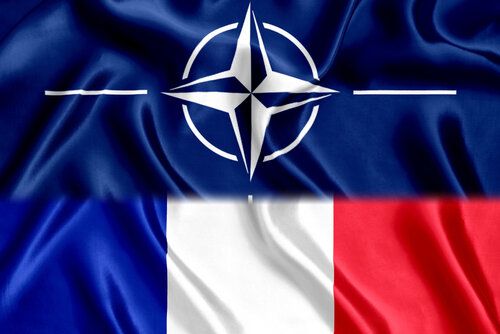A member of the Atlantic Alliance and its integrated military command since 1952, Turkey has historically played the role of Eastern pillar, in contact with the Soviet Union during the Cold War and with the Middle East subsequently. Over the last decade, Turkey’s adoption of foreign policies that contradict those of its Western allies (cooperation with Russia, including on military matters; tensions with Greece in the Mediterranean; activism in Libya and Syria, and so on) has led those allies to question Turkey’s place in the North Atlantic Treaty Organization (NATO). Ankara is keen to remain within the Western security system, however.
Turkey, a Key Actor in NATO Strategy
The Turkish military is the second largest in NATO, with nearly 735,000 personnel. Over the last few years, it has been undergoing serious modernization, with Turkey devoting nearly 2.7 percent of its GDP to it. The modernization effort is particularly focused on the navy and on developing attack drones. A proportion of these capabilities has been put at NATO’s service, for example in Kosovo and Iraq. Turkish infrastructure has also been mobilized by NATO: Alliance nuclear weapons are stored at Incirlik Air Base; Izmir is home to the standing headquarters for NATO land forces, and Kürecik Radar Station provides surveillance of the Middle East. Cooperation between allies has occasionally fallen down, however. The Turkish military occupation of Northern Cyprus from 1974 pushed the United States to declare an arms embargo on Turkey, and Ankara’s refusal in 2003 to allow American troops en route to Iraq to pass through its territory also aroused tensions.
Turkey’s Relationship with the United States
In 2021, Turkey announced its wish to reduce the tensions that had built up with its European partners, but also with its Middle Eastern neighbors, including Egypt, Israel, Saudi Arabia, and the United Arab Emirates. Fearing tough action from the US president, Joe Biden, it also stepped up demonstrations of goodwill toward Washington to avoid fresh economic sanctions. The Turkish offer to maintain security at Kabul airport after the withdrawal of Western forces from Afghanistan was intended as a demonstration of the strategic value of the Turkish army: Ankara could function as NATO’s intermediary with the Taliban. On the Black Sea, Turkey also seems to want to bring its position closer to the Alliance’s. Providing the Ukrainian government with drones simultaneously makes life harder for Russia and its local relays and provides reassurance to NATO, which continues to be worried by the closeness that Recep Tayyip Erdoğan and Vladimir Putin have been flaunting since 2016. There is nevertheless a major disagreement between Turkey and NATO regarding Moscow’s delivery of S-400 missiles to the Turkish armed forces, which led to Turkey being expelled from the American F-35 joint strike fighter program. This issue remains deadlocked, as Ankara wants to make clear its desire for strategic autonomy.
A Moment to Reflect on NATO’s Role
In 2022, Turkey’s attitude should make France reflect on NATO’s role concerning the new conflicts at its southern border. Turkish activism in the eastern Mediterranean has exposed the contradictions within the Alliance, directly opposing Athens and Ankara and challenging other member states to define a common position. When the French frigate Courbet was threatened by a Turkish naval vessel, the ensuing French protests were only weakly echoed by NATO. This led to France withdrawing from the mission to monitor the Libyan coastline. By going it alone in Syria, Ankara is also trying to win the Alliance over. In 2015, NATO came close to confrontation with Russia when the Turkish armed forces downed a Russian plane. Today it is being called on to support Ankara in its struggle with the Kurdish militias in Syria, even though the latter are allies of the Western coalition against ISIS. The Turks deplore NATO’s lack of support. Emmanuel Macron, by contrast, deplores NATO’s inability to respond to Turkish adventurism.
In theory, Turkish combat experience acquired since 2016 in Syria and Libya—hybrid warfare methods, the development of new weapons such as drones—could be an asset for NATO. But Turkey’s strategic vision is increasingly influenced by nationalist and Eurasianist schools of thought that are hard to reconcile with the Alliance’s culture. Turkey looks more and more as if it regards the Alliance as a simple guarantee of security that does not place any restrictions on its foreign policy. Hence its attempts to impose a system of more flexible alliances, which will inevitably complicate the task of defining NATO’s new Strategic Concept in 2022.
Aurélien Denizeau


